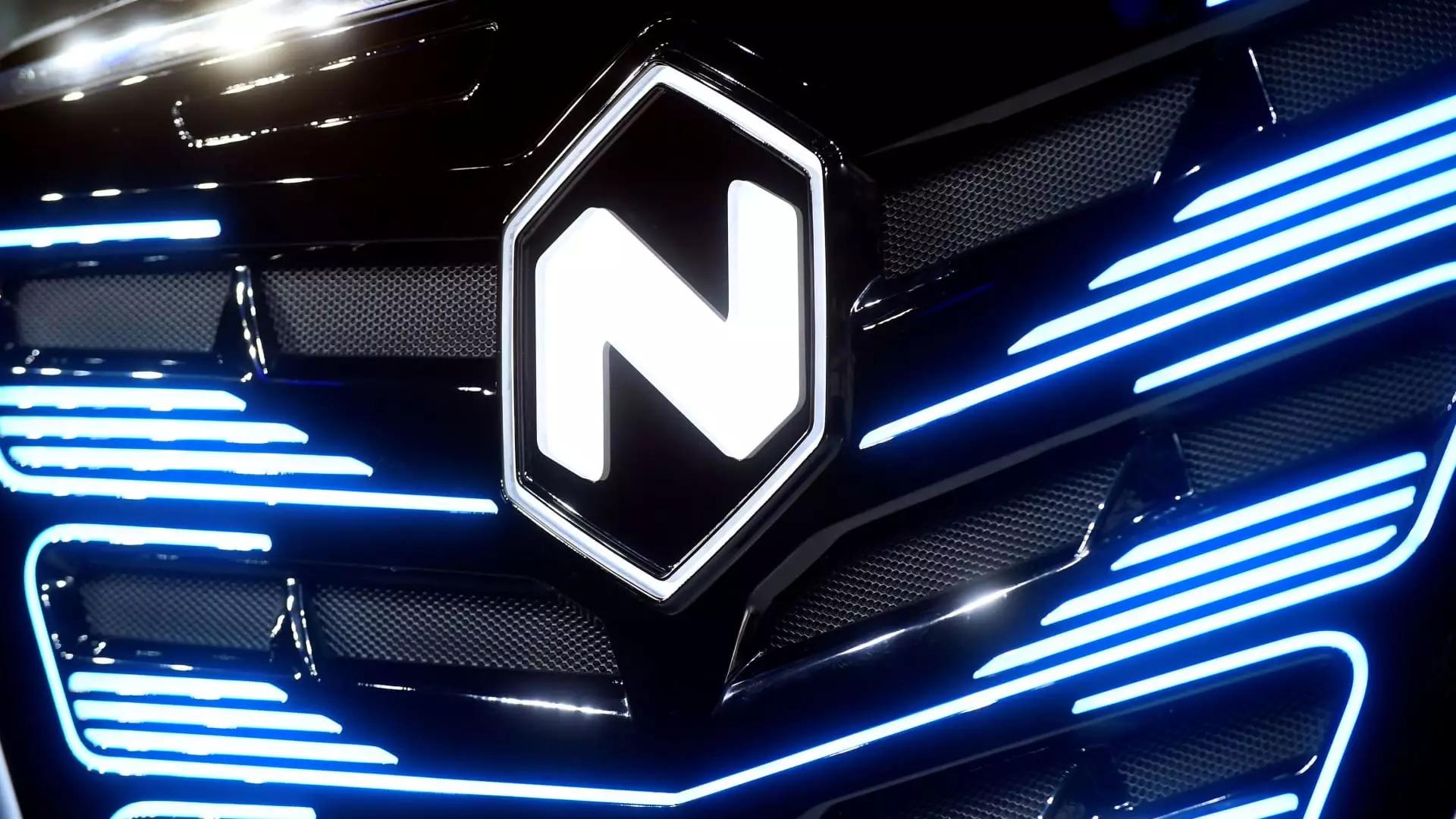Nikola Corp., once hailed as a promising electric vehicle (EV) startup, has recently filed for Chapter 11 bankruptcy protection, a stark contrast to its meteoric rise in the early 2020s. Initially regarded as a disruptive force within the automotive industry, Nikola captivated investors and analysts alike with its ambitious vision and innovative technology. At one point, the company boasted a staggering market valuation exceeding $30 billion, even surpassing that of established automakers like Ford. This rise quickly devolved into a complex saga filled with controversy, legal challenges, and, ultimately, financial turmoil, underscoring the vulnerabilities and pitfalls within the burgeoning EV sector.
As Nikola prepares for the auction of its assets and a potential reorganization, CEO Steve Girsky’s statements reveal the daunting challenges the company has faced. In his public communications, Girsky has acknowledged a range of market and macroeconomic pressures that have hindered operational stability. Despite its best efforts, the company has struggled to secure additional funding or find a buyer, leading to the decision to seek court protection. With only $47 million in cash available for the bankruptcy proceedings and resultant sale process, Nikola’s board determined that Chapter 11 would offer the most viable path forward under the circumstances.
Girsky himself, with a background as a financial analyst and former GM executive, has been at the helm since 2023. His leadership was anticipated to provide a turnaround, especially since Nikola’s core products include all-electric and fuel cell electric semitrucks. Nevertheless, production numbers have been dismal, with only about 600 vehicles produced since 2022. Additionally, a wave of recalls—many due to significant defects—has exacerbated financial losses, costing the company tens of millions. As Nikola’s cash reserves dwindle, the outlook remains grim, with projections suggesting that it may only sustain operations into the first quarter of 2025.
The Downfall: A Scandalous Legacy
The unraveling of Nikola Corp. can largely be attributed to the actions of its founder, Trevor Milton, whose leadership was marred by scandal. Milton’s dynamic personality and grandiose promises initially attracted attention, but he ultimately faced conviction for wire and securities fraud in 2022. Allegations of misleading investors about the company’s innovative technologies and operational capabilities began to taint Nikola’s reputation, following a comprehensive report by short-seller Hindenburg Research that laid bare numerous inconsistencies and deceptive claims.
Milton’s departure opened the door for Girsky’s leadership, but the damage had been done. Nikola’s partnership with General Motors—an agreement that included a $2 billion stake for GM—came under scrutiny amid these revelations and contributed to the diminishing trust from investors and consumers. The company struggled not only to produce vehicles in sufficient numbers but also to convince stakeholders of its technological viability amid ongoing recall issues.
Nikola’s story serves as a cautionary tale for the entire electric vehicle industry, which has seen a plethora of startups rise and fall in similar fashion. Many companies in this space have pursued public listings through Special Purpose Acquisition Companies (SPAC), often with promises of rapid growth and innovation. However, like Nikola, these companies frequently encounter harsh realities characterized by operational deficiencies, regulatory scrutiny, and market volatility.
The fallout from Nikola’s failure extends beyond its internal struggles; it also impacts investor sentiment across the EV landscape. With the company’s stock plummeting to below $2 per share—drastically lower than its peak of nearly $80—many are left questioning the long-term sustainability of high-flying EV startups. These developments not only discourage investment but also foster skepticism among consumers contemplating the transition to electric vehicles.
As Nikola Corp. embarks on its Chapter 11 process, the saga of this once-promising startup reinforces critical lessons for investors and industry stakeholders. The financial pitfalls of overvaluation, leadership missteps, and technological over-promising are echoes of a broader narrative that continues to unfold in the electric vehicle sector. It serves as a reminder that the path to innovation in the automotive industry is fraught with challenges, and that sustaining growth requires not just visionary ideas but also accountability, transparency, and a commitment to operational excellence. The story of Nikola is far from the final chapter; rather, it is a pivotal moment that may influence the future trajectory of EV companies for years to come.

